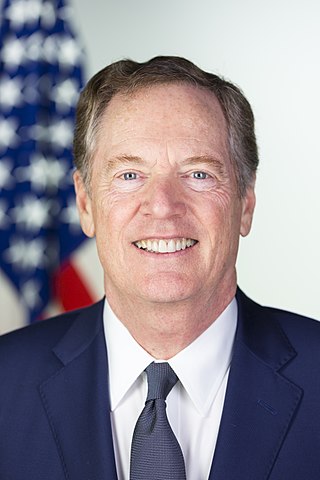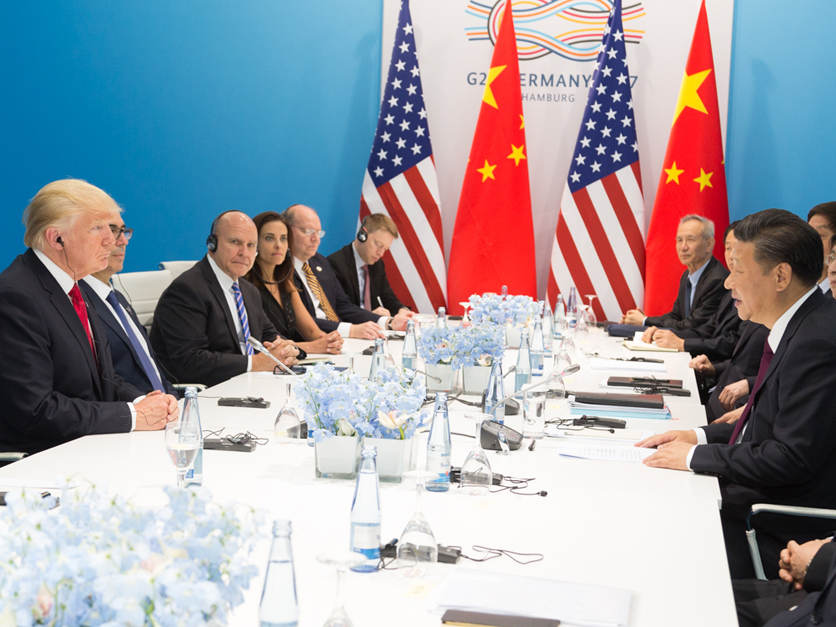The Trump administration is eyeing next week’s Group of 20 summit in Japan to jump-start negotiations with China and make continued progress toward a deal with the Japanese to reduce barriers to beef, pork and other U.S. farm commodities.
On Tuesday, President Donald Trump announced on Twitter that he would have an “extended meeting” with Chinese President Xi Jinping during the G-20, and U.S. Trade Representative Robert Lighthizer told the Senate Finance Committee that U.S. and Japanese officials would resume discussions on an agricultural trade deal.
The next few weeks also could be critical for the U.S.-Mexico-Canada trade agreement: Lighthizer said he hopes to make “substantial progress” in discussions with House Democrats to address their concerns about the USMCA. “I believe we’re on track.” He didn't say when the trade pact's implementing legislation would actually be submitted to Congress for approval.
Lighthizer, who is scheduled to testify before the House Ways and Means Committee on Wednesday morning, told the senators he hopes to have an agreement with Japan “in the next few months.” He reiterated that the goal of the talks is to reach agreement on agricultural trade before moving on to other issues. He said the talks “are making headway.”
Lighthizer offered no timetable for concluding the U.S.-China negotiations, but defended the president’s use of tariffs to apply pressure.

U.S. Trade Representative Robert Lighthizer
“I know that one thing that won’t work is talking to them, because we’ve done that for 20 years,” Lighthizer told Sen. Sherrod Brown, D-Ohio. He added, “If there’s a better idea than tariffs then I want to hear it. I haven’t heard it.”
At the outset of the hearing, Finance Chairman Charles Grassley, R-Iowa, told Lighthizer that tariffs should be used only as a “last resort option,” because taking money “out of the pockets of hardworking Americans is not in our national best interest.”
At the White House, Trump’s national economic adviser, Larry Kudlow, told reporters there were “no guarantees” that the Xi-Trump meeting would result in progress.
“Our position will continue to be we want structural changes here. We want structural changes on all the items — theft of IP (intellectual property), forced transfer of technology, cyber hacking, of course, trade barriers. We've got to have something that's enforceable,” Kudlow said.
As far as the USMCA, Lighthizer said his discussions with House Democrats about approving the USMCA legislation had been helped by the appointment of a small group of House Ways and Means members to lead negotiations with the White House. Democrats themselves had conceded that it was difficult for Lighthizer to figure out how to address the disparate concerns they had raised.
“I need someone to sit down on the other side and say ‘Yes, this is enough,” Lighthizer told Texas GOP Sen. John Cornyn, praising House Speaker Nancy Pelosi’s willingness to work with him. “The speaker has been absolutely, as far as I’m concerned, exactly as you would hope she would be," Lighthizer said.
Speaking to reporters before the hearing, Grassley offered similarly complimentary remarks for Pelosi. He said the two recently met, and he didn't feel like she was misleading him about the status of the House's consideration of the deal.
“There is a lot of new members that are very anxious to be heard,” Grassley said. “There is a lot of hand-holding that has to be done with these new members and we just have to be patient.”
Grassley went as far as to say he thought the deal could be passed through Congress prior to the August recess under the rules of Trade Promotion Authority, so he hoped to see passage by then or shortly after Congress returns to Washington in September.
Speaking for many Democrats on both sides of Capitol Hill, Sen. Debbie Stabenow, D-Mich., raised a concern with Lighthizer that the agreement could limit congressional efforts to reduce pharmaceutical prices. Lighthizer stopped short of saying how the concern would be addressed but expressed agreement with her goal.
He said the USMCA would make no change in U.S. law, but he went on to say that “if the U.S. Congress decides on changing these rules in some way, because you think it’s good for getting prices down. … We should not be in a position where it’s more difficult or precluded.” he said.
Several Democrats, including Brown, pressed Lighthizer to consider a side agreement aimed at ensuring that companies in Mexico comply with labor rules. The proposal by Brown and the committee’s ranking Democrat, Ron Wyden, D-Ore., would provide additional labor enforcement personnel, require compliance audits and raise tariffs on companies that violate collective bargaining rights.
Lighthizer didn’t endorse the proposal, but he told Sen. Catherine Cortez Masto, D-Nev., that he has “every expectation that we will come to a conclusion that will be satisfactory with you.”
For more news, go to www.Agri-Pulse.com.


